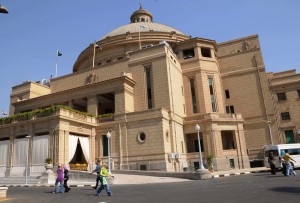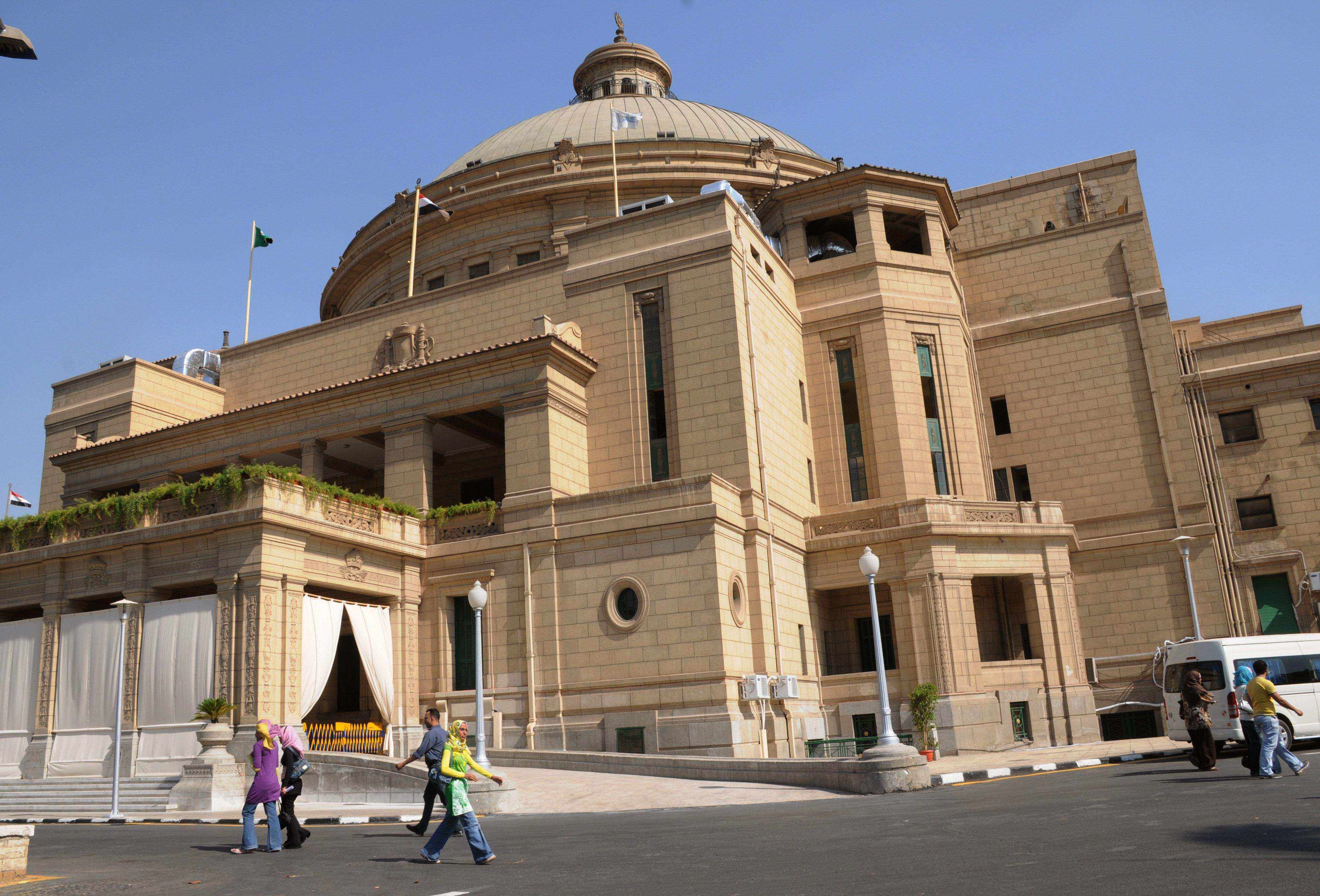
(AFP Photo)
By: Nada Badawi
The faculty of economic and political science at Cairo University discussed a range of economic issues with government ministers on Saturday and Sunday. Topics included the political economy, inclusive growth and labour productivity.
“We never had a solid economic reform programme before 2011,” said Minister of Planning and International Cooperation Ashraf Al-Araby in an opening statement on Saturday.
“But since then, our economic growth has reached 2.2%, and we’re aiming for 7% to 8% on the long run” he continued. “There are no reasons to be pessimistic.”
He added that ever since President Mohamed Morsi was elected, the government has been “working day and night” to reduce the country’s budget deficit.
This is to be achieved through support from international finance institutions such as the International Monetary Fund (IMF) and the World Bank, he said.
He pointed out the fact that IMF negotiations are still in place is an “indication of the economy’s ability to recover fast from the political unrest of 2011”.
Professor and Dean of the economic and political science department Hala El-Said highlighted economic hindrances that have been impeding economic recovery in the country, such as the devaluation of the Egyptian Pound, the lack of a political and economic vision, and the lack of a national consensus on how the country is run.
“We cannot only look at currency problems or tourism rates,” El-Said said. We must also take into consideration justice, inclusive growth, poverty and many others to get ourselves out of this mess,”
Magda Saleh, a professor at the department and one of the speakers, said that terms such as “justice” should be said with caution, as they hold many meanings.
“Are we talking about income distribution when we talk about ‘justice’, or equal opportunities? The term is much more complex than we think,” she said.
Ibrahim Darwish, another faculty member, who later on spoke about “rights and freedoms”, said that the 2012 constitution has not made it clear what economic rights Egyptians have.
Darwish described the 2012 constitution, which was voted on last November, as “void”, especially since no “economic vision” was mentioned.
Minister of Investment Ossama Saleh spoke during the second day of the conference, where he reviewed different economic models, such as Brazil’s, and emphasised the importance of national projects.
“The comparison between Brazil is not aimed at making us, Egyptians, appear less competent,” he said. “But instead to draw the lessons learned behind the experience and learn from them,”
He stated that Egypt has adopted a new system since Morsi’s election in June, to simplify the investment process in the country.
The minister added that the government, in light of current national projects both small and medium, is also studying alternative methods to provide energy as the summer approaches, so as not to affect the productivity of operating businesses.
Salwa Soliman, professor emeritus at the university, highlighted the dangers regarding economists in the country who tend to favour certain ideologies or agendas.
“Let’s take the privatisation issue for example,” she said. “I don’t mind it, but I don’t approve of the mechanism adopted to achieve it.”
“This is not to mention that none of the economists now address problems like food and job security, or even energy,” she continued. “They are nowhere mentioned.”
Other topics were raised during the conference included the form of state governance, as well as secular-Islamic and secular-military relations in the country.




